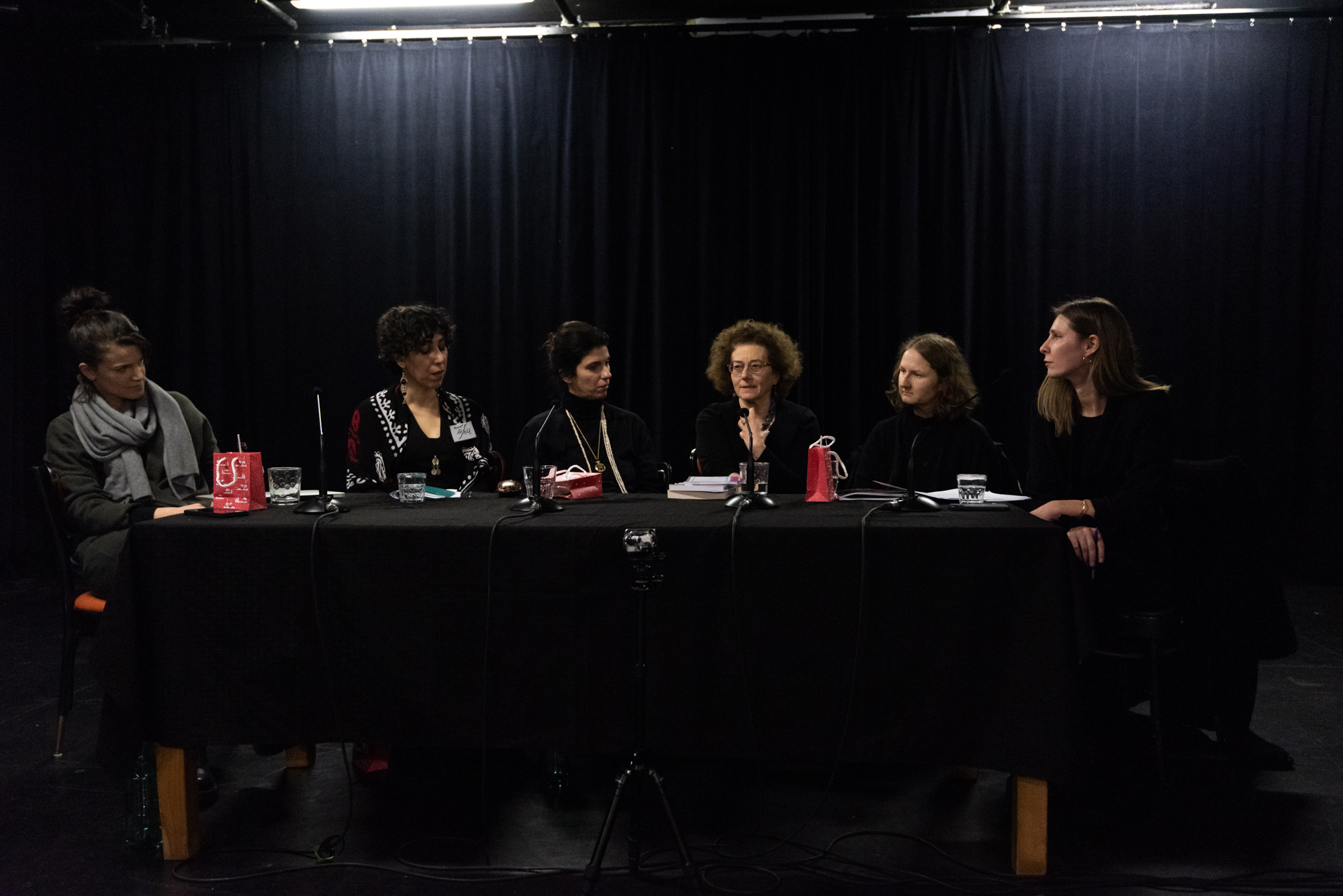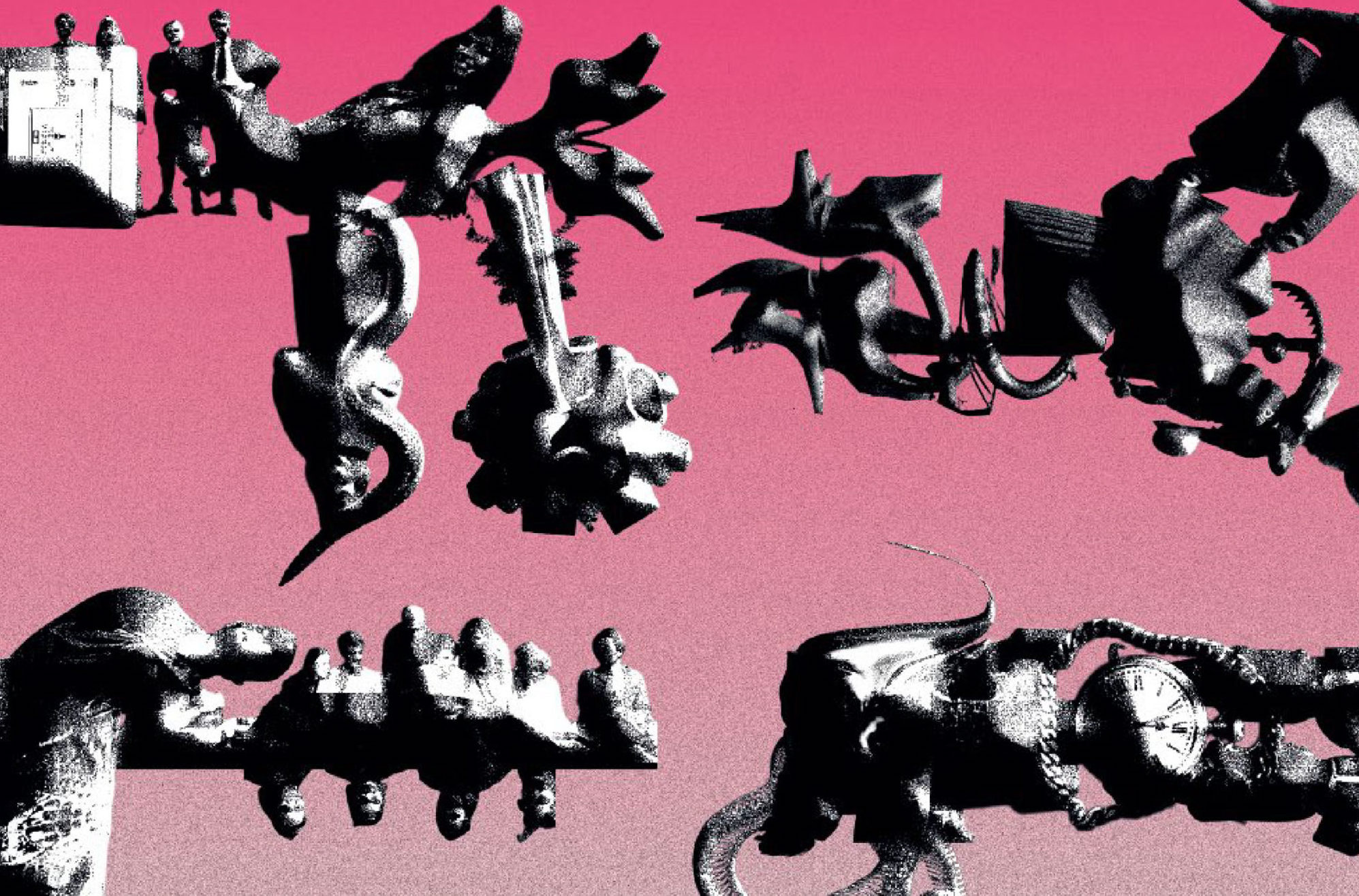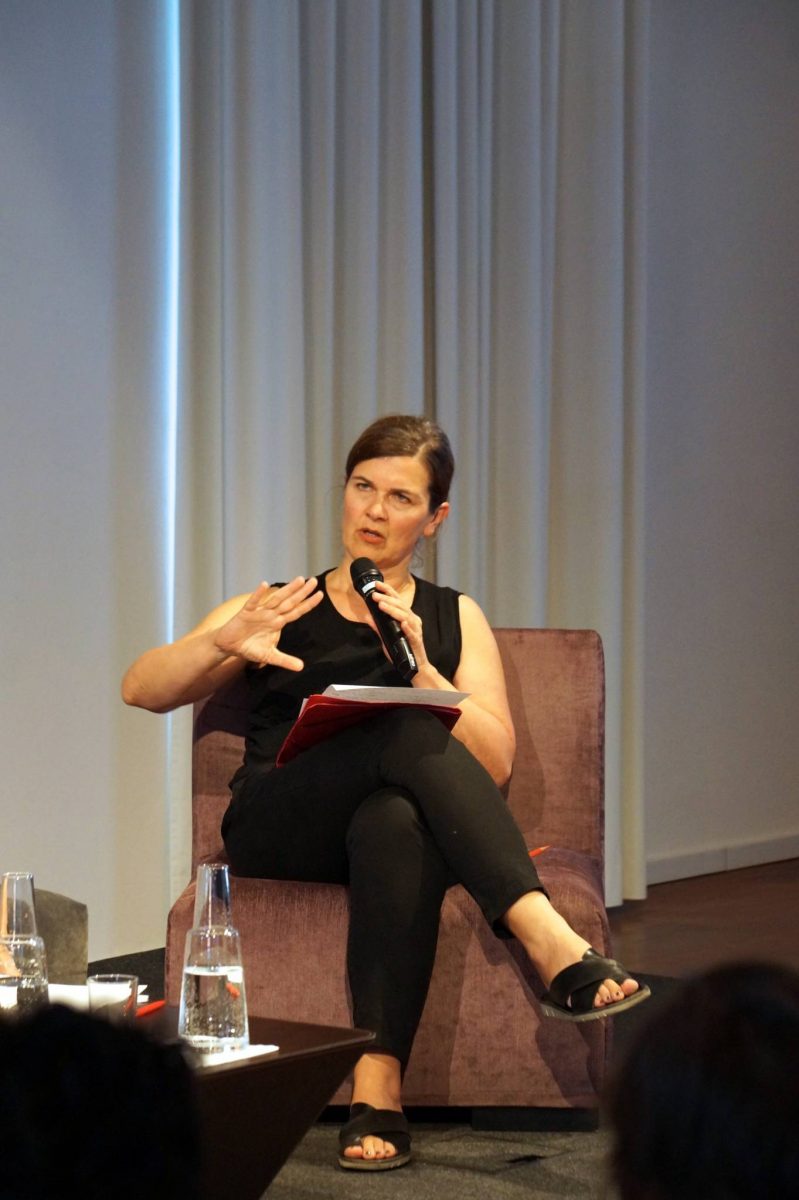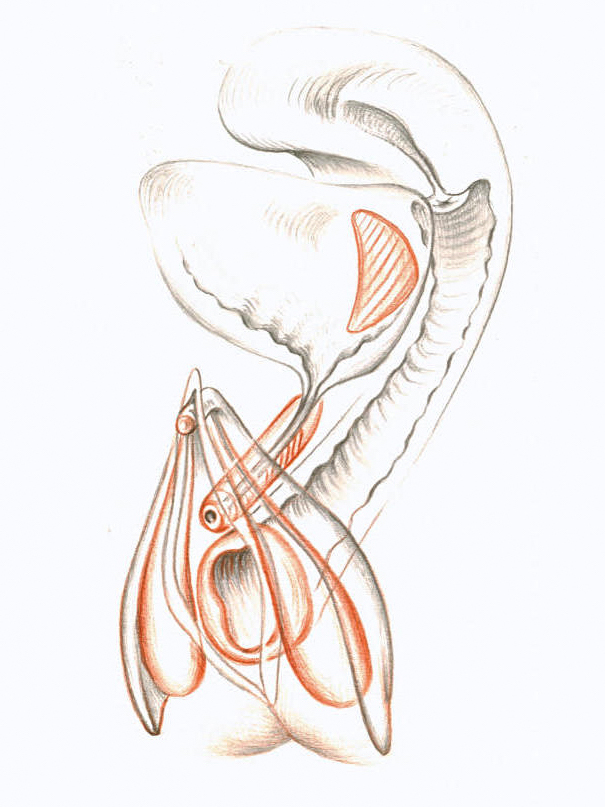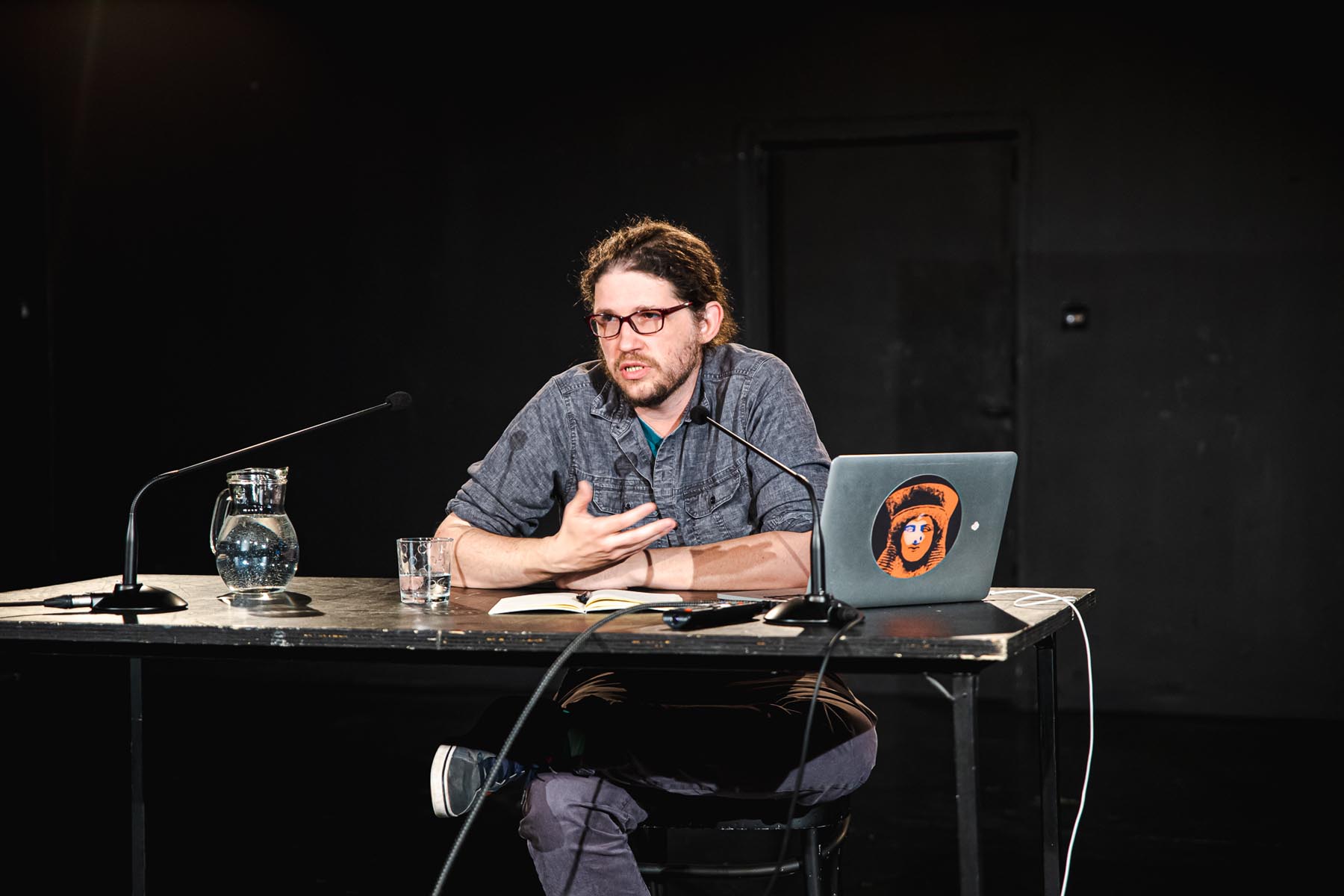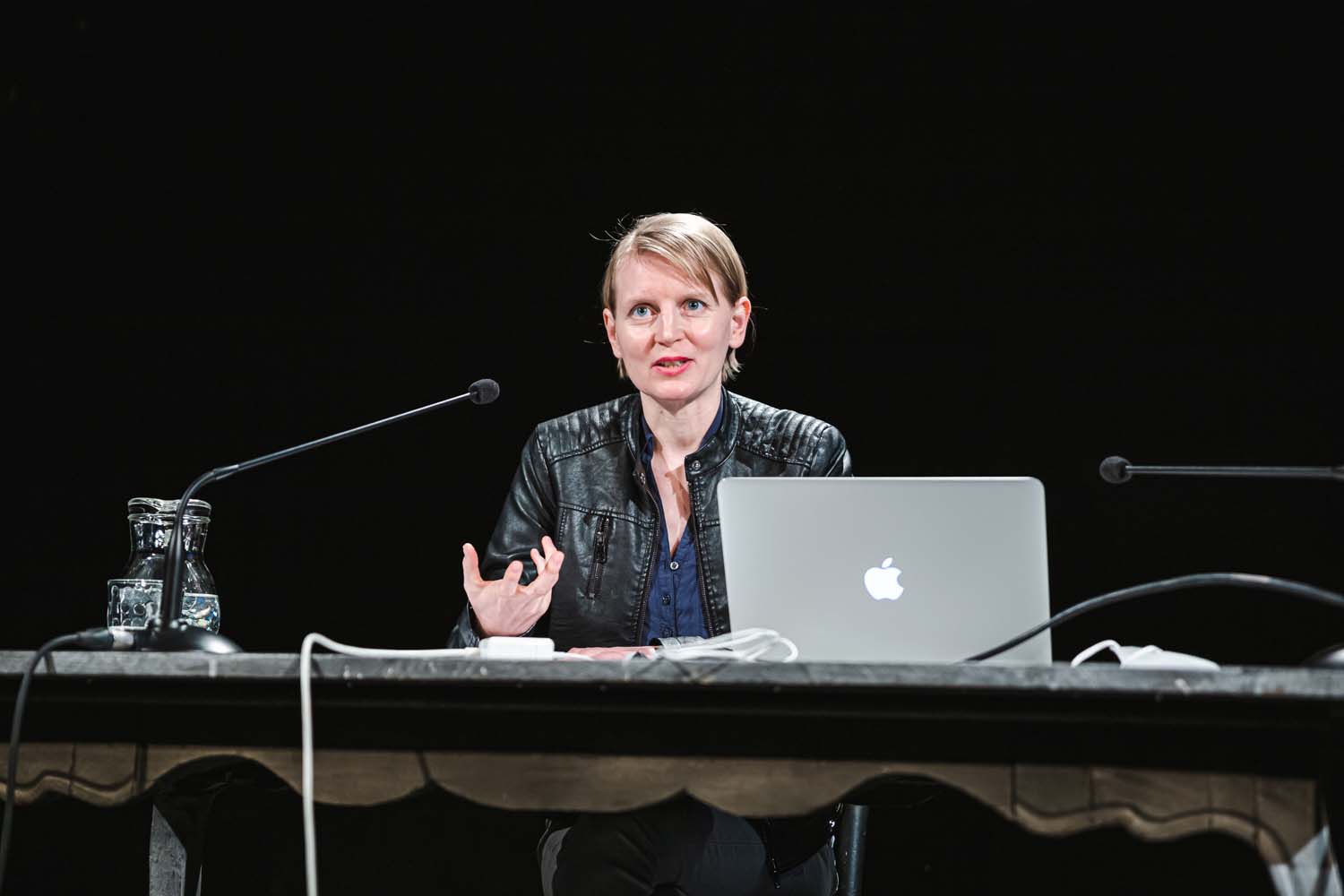Gender-based Violence
Criticism of violence has always been part of theoretical and practical pursuits of feminism, which has, in its long history, connected to anti-militaristic and anti-nationalistic fights. Among those was, for example the Women in Black (Žene u crnom) movement: this transnational women movement was formed in Belgrade in 1991 during the wars of the former Yugoslavia and carried out non-violent, silent protests of women dressed in black, in public spaces. A feminist politisation of violence points out the social and cultural mechanisms that produce violence and draws attention to the fact that the violence of the authority is race-, class-, and gender-determined. The round table will open the topic of violence wide and touch upon the neuralgic points of contemporary society: abortion rights and unwanted pregnancy as violence, femicide, the #MeToo movement, rape as a weapon of war, resistance against repression of women’s bodies, care as violence, the questions of which lives matter and which do not, which death is mourned and which not, and when violence can be an emancipatory tactic. To kill and let die is the state of the contemporary world. What can artistic practices contribute?
Round table
Moderator: Alja Lobnik
Guests: Sara Afzali, Katja Čičigoj, Tjaša Črnigoj, Šejla Kamerić, Darja Zaviršek
16 December 2022 / 20.30 / New Post Office / Free admission
The discussion will be held in English.
Guests
Sara Afzali is an Iranian poet, journalist, photographer and visual artist based in Slovenia. The Iranian artist recently performed at the International Centre of Graphic Arts in Ljubljana, where she paid tribute to her compatriots, the Iranian women in the struggle for freedom, by cutting off her hair.
Katja Čičigoj is a scientific collaborator at the University of Paderborn, where she will defend her doctoral thesis in feminist philosophy. Her research focuses on contemporary European philosophy and critical theory. She was a guest research student at the CRMEP, Kingston University, London; at the CPCT, Goldsmiths College, London; and at the Department of women and gender studies, Haifa University. She worked as a lecturer at the Chair of Practical Philosophy, Paderborn University, and the MA Dance Studies, AMEU. In 2019 she translated, coedited and wrote the accompanying research essay to The Dialectic of Sex by Shulamith Firestone (Založba /*cf.), and organised an international symposium on feminist utopias. She co-organised and co-led several seminars, reading groups, lectures and conferences in contemporary philosophy, critical theory and feminist thought in Giessen, London, Paderborn, and Ljubljana. She coedited two issues of the journal Dialogi on feminist topics, and is currently coediting a volume on feminist utopias of care and reproduction for the /*cf. publishing house, a special issue of the journal Feminist Encounters on feminist techno-imaginaries, and a scholarly edition of The Dialectic of Sexin English.
Tjaša Črnigoj is a theatre director (AGRFT) and a philosopher and literary comparativist (UL Faculty of Arts). She is currently in training as a psychodrama psychotherapist (Slovenian Society for Psychodrama). As a theatre director and author she works both on the institutional and independent scene. In recent years, she has directed Gilgalovanje (Glej Theatre, 2018), Satirikonijada (Moment and AGRFT, 2018), Smrčuljčica (SNG Nova Gorica, 2018), Plesni stroj BUM BAM (Slovene Youth Theatre and Kino Šiška, 2019), Bakice (Savez udruga Molekula, Kolektiv Igralke, KUD Transformator, 2020), and the WoW Awards (City of Women, 2021). Gilgalovanje was included in the competition programme of the Borštnikovo srečanje festival, Bakice was performed at the Young Lions and on various stages in Croatia, including the Ulysses Theatre in Brijuni, and Satirikonijada won three ZIZ awards and was included in the Sex and Theatre festival. In addition, Tjaša Črnigoj works as a professional accompanist for the Linhart Meeting and the Meeting of Children’s Theatres, and as a pedagogue she regularly cooperates with JSKD and SLOGI. In recent years, she has also worked as a dramaturg (Nataša Živković: Between Two Fires, Via Negativa and City of Women 2020), performer (Physis, Via Negativa 2021), mentor in the project Šift by Via Negativa and the Sploh Institute (2020-2021), and as an assistant director and dramaturg or co-dramaturg with director Tomi Janežič (Seven Questions about Happiness, LGL 2020; Beyond Human Power, National Theatre Oslo, 2021). She is currently in residence at the Cité Internationale des Arts in Paris as a laureate of the French Institute, for which she also received a scholarship from the Jernej Šugman Fund, and where she has just completed her residency project, the transdisciplinary laboratory Through The Eyes Of The Others. She is also a regular collaborator with the Studio for the Study of the Art of Play as a producer.
Šejla Kamerić is a visual artist whose practice involves film, photography, objects, drawings and installations. She has received widespread acclaim for the poignant intimacy and social commentary that have become the main elements of her work. Taking up the subjects that arise from non-linear historical narratives, Kamerić places her focus on the politics of memory, modes of resistance in human life and consequential idiosyncrasies of women’s struggle. By insisting on empathy as the founding communicative mechanism between herself, her subjects and spectators, Kamerić warns of, and at the same time creates, places of power and political arenas. Her work is part of several art collections such as TATE Modern, MACBA Barcelona, Kontakt Collection, Vehbi Koç Foundation. Recently, Kamerić has exhibited at the 6. Ural Industrial Biennial of Contemporary Art, Yekaterinburg; Manifesta 14, Prishtina; National Gallery, North Macedonia; Kunsthaus Dresden; New Tertyakov Gallery, Moscow; GAK Gesellschaft für Aktuelle Kunst, Bremen; Sharjah Art foundation – Sharjah Art Museum.
Darja Zaviršek, Ph.D., researcher and professor at the University of Ljubljana, Faculty of Social Work. She is the chair of Social Justice and Inclusion Department at the Faculty of Social Work and Professor of the international MA course ‘Social Work as a Human Rights Profession’ at the Alice Salomon University of Applied Sciences in Berlin. She serves as the President of the Eastern European Sub-Regional Association of the Schools of Social Work, which is part of IASSW and is the member of the Academic Network of European Disability Experts (ANED-EDE). Main areas of research: gender studies with the emphasis on violence and sexual abuse, disability studies, history of social work after 1945 in Yugoslavia. Some books: Family Dictionary (2021); Roma Families (2019); Coercive Care (2018); Intercountry and international adoption: a social work perspective (2012); From Blood to Care: Social Parenthood in a Global World (2012); Disability as a Cultural Trauma (2000). She has been involved in the development of social work programmes in Ukraine, Kosovo, Georgia and Bosnia and Herzegovina. In 2022 she was awarded with the Eileen Younghusband Award in Social Work, given by the IASSW.
